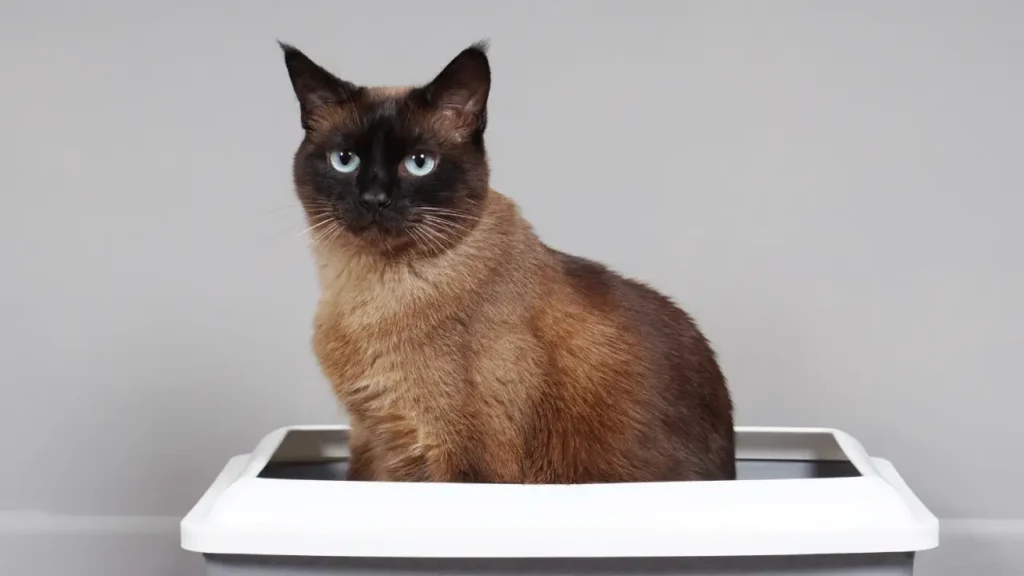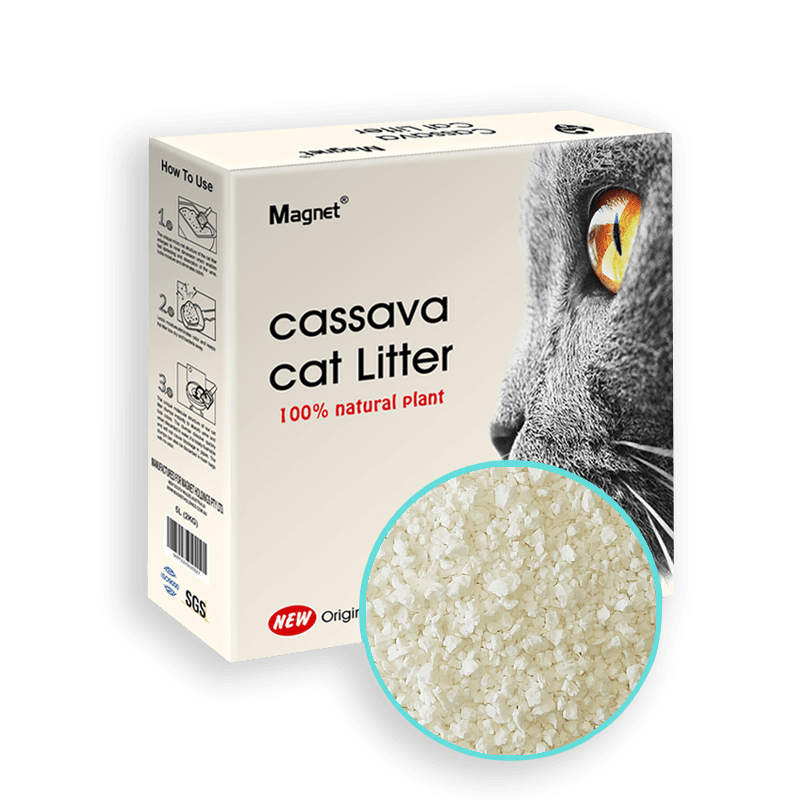Is your cat struggling to use their litter box comfortably? The size of your cat’s litter box can significantly impact their hygiene and overall well-being. A poorly sized litter box can lead to litter box avoidance, which can be a frustrating and stressful experience for both you and your feline friend.
In this blog post, we’ll explore the ideal size for a cat litter box, the factors influencing this, and some tips for choosing the right box for your furry companion.
What Size Litter Box for Your Cat?

The ideal cat litter box size depends on a few factors:
- Cat’s Size: Larger cats will need larger boxes to comfortably move around and use the litter.
- Number of Cats: If you have multiple cats, you’ll need at least one litter box per cat, plus an extra.
- Cat’s Personality: Some cats are more sensitive than others and may prefer a larger, more private space for their litter box.
As a general rule, your cat’s litter box should be large enough for them to stand up, turn around, and bury their waste without touching the sides.
Here’s a cat litter box size chart for conference:
| Number of Cats | Recommended Box Size |
|---|---|
| 1 | At least 15 inches long, 10 inches wide, and 12 inches deep |
| 2 | At least 20 inches long, 15 inches wide, and 12 inches deep |
| 3+ | Provide an additional box for each cat |
Remember to adjust the size of your litter box as your cat grows or if your household changes.
Oversized Cat Litter Boxes
Oversized cat litter boxes can be a great option for larger cats, cats with joint issues, or those who simply prefer more space. These boxes provide ample room for your feline friend to move around comfortably and to bury their waste effectively.
Here are some benefits of using oversized cat litter boxes:
- Comfort: Larger cats can stretch and move around freely without feeling cramped.
- Hygiene: Adequate space allows cats to bury their waste more thoroughly, reducing odors and messes.
- Joint pain relief: For cats with joint issues, larger boxes can make it easier to enter and exit.
However, oversized cat litter boxes may also have some drawbacks:
- Cleaning: Larger boxes can be more difficult to clean, especially if they are filled to capacity.
- Tracking: If your cat is prone to tracking litter, a larger box may result in more litter being tracked around your home.
If you’re considering an oversized cat litter box, it’s important to weigh the benefits and drawbacks to determine if it’s the right choice for your cat.
Would you like to know more about oversized cat litter boxes or discuss other options?
What is the Average Litter Size for a Cat?
The average litter size for a cat can vary depending on several factors, including the cat’s age, breed, and overall health.
Generally, the first litter of a young cat is often smaller than subsequent litters. As the cat matures, her litter sizes may increase.
Here’s a rough estimate of average litter sizes:
- First litter: 2-3 kittens
- Subsequent litters: 3-5 kittens
It’s important to note that these are just estimates, and individual cats may have larger or smaller litters.
What Size Litter Box for 10 Pound Cat
For a 10-pound cat, a litter box that is at least 15 inches long, 10 inches wide, and 12 inches deep is recommended. This size should provide enough space for your cat to comfortably stand, turn around, and bury their waste without touching the sides.
If you have multiple cats or your cat is particularly large, you may want to consider a larger litter box.
What Size Litter Box Do You Need for Pretty Litter?
The ideal size for a Pretty Litter box will depend on the number of cats you have.
Here’s a general guideline:
- One cat: A single-cat litter box should be at least 15 inches long, 10 inches wide, and 12 inches deep.
- Two cats: A two-cat litter box should be at least 20 inches long, 15 inches wide, and 12 inches deep.
- Three or more cats: Provide an additional box for each cat.
Remember: It’s also important to consider your cat’s size and personality. Larger cats or cats with joint issues may benefit from a larger litter box. Additionally, some cats may prefer more privacy and may benefit from having multiple litter boxes in different locations.
How Do I Know if My Cat Needs a Bigger Litter Box?
Here are some signs that your cat might need a bigger litter box:
- Litter box avoidance: If your cat is avoiding the litter box or seems hesitant to use it, it could be because the box is too small.
- Accidents outside the litter box: If your cat is having accidents outside the litter box, it could be a sign that they need a larger space to relieve themselves.
- Stress or anxiety: A cramped litter box can cause stress or anxiety for your cat, leading to behavioral problems.
- Excessive grooming: If your cat is grooming excessively, it could be a sign of stress or anxiety related to the litter box.
If you notice any of these signs, it’s a good idea to try a larger litter box. You can also experiment with different litter box placements to see if that helps.
FAQs
Do cats prefer small or large litter boxes?
The ideal size of a cat litter box depends on several factors, including your cat’s size, personality, and the number of cats in your household.
Generally, larger cats will need larger boxes to comfortably move around and use the litter. Additionally, cats with joint issues or those who simply prefer more space may also benefit from larger boxes.
However, it’s important to note that oversized litter boxes can also have drawbacks, such as being more difficult to clean and potentially contributing to litter tracking.
Ultimately, the best way to determine the ideal size for your cat’s litter box is to observe their behavior and make adjustments as needed. If your cat seems uncomfortable or is avoiding the litter box, it may be a sign that the box is too small.
Do cats prefer closed or open litter boxes?
The preference for closed or open litter boxes can vary from cat to cat. Some cats may feel more comfortable and private in a closed litter box, while others may prefer the open design.
Here are some factors to consider when choosing between closed and open litter boxes:
Cat’s personality: Shy or anxious cats may prefer the privacy of a closed litter box, while more outgoing cats may not mind an open design.
Litter box avoidance: If your cat is avoiding the litter box, a closed-top box may help them feel more secure and comfortable.
Odor control: Closed litter boxes can help to contain odors, making them a good option for those who are sensitive to smells.
Cleaning: Open litter boxes are generally easier to clean, while closed litter boxes may require more effort to sanitize properly.
Ultimately, the best way to determine your cat’s preference is to try both types of litter boxes and see which one they seem to prefer. You may need to experiment with different styles and locations to find the ideal setup for your feline friend.
How often should I wash my litter box?
The frequency with which you should wash your cat’s litter box depends on several factors, including:
Number of cats: The more cats you have, the more frequently you’ll need to clean the box.
Litter type: Some litters are more absorbent than others, which can affect how quickly odors develop.
Cat’s habits: If your cat is prone to tracking litter around the house, you’ll need to clean the box more often.
As a general rule, you should scoop out solid waste and clumps daily and wash the entire litter box thoroughly at least once a week. However, if you notice a strong odor or excessive tracking, you may need to clean the box more frequently.
Here are some tips for cleaning your cat’s litter box:
Empty the contents: Remove all of the litter from the box.
Scrub the box: Use a disinfectant cleaner to scrub the inside of the box.
Rinse thoroughly: Rinse the box with warm water to remove any residue from the cleaner.
Dry completely: Allow the box to dry completely before adding fresh litter.
By following these tips, you can help to keep your cat’s litter box clean and hygienic.
Conclusion
The size of your cat’s litter box plays a crucial role in their comfort and overall well-being. A cramped space can lead to litter box avoidance, creating a stressful situation for everyone involved.
Remember:
- Size matters: Choose a litter box large enough for your cat to move around comfortably.
- Consider additional factors: Size adjustments may be needed depending on the number of cats and your cat’s personality.
- Monitor your cat: Observe your cat’s behavior to ensure the chosen size promotes proper litter box usage.
Ready to provide your feline friend with the perfect litter box haven? MagnetCatLitter.com offers a wide variety of high-quality litter boxes in various sizes and styles to cater to any cat’s needs.
Contact us today for a quote! We’re confident we can help you find the purrfect fit for your furry companion.









